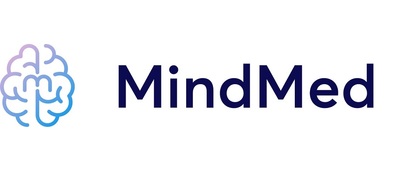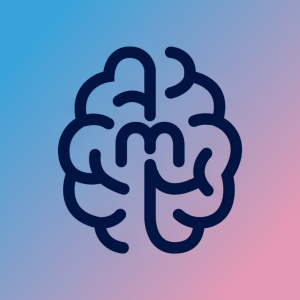MindMed Announces Publication of Study Comparing the Acute Effects of Lysergic Acid Diethylamide and Psilocybin in Healthy Subjects
Mind Medicine (MindMed) Inc. (NASDAQ: MNMD) announced the publication of a study comparing the acute effects of LSD and psilocybin. Published in Neuropsychopharmacology, the study indicates that the differences between both substances are dose-dependent. Key findings suggest that 20 mg psilocybin is equivalent to 100 µg LSD. The research involved 28 participants and highlighted no significant qualitative differences in altered states of consciousness between the two substances, though LSD demonstrated longer effect durations. The study aims to enhance therapeutic potential in treating brain-based disorders.
- The study provides crucial insights into dosage equivalence, suggesting 20 mg psilocybin equals 100 μg LSD.
- Data from this study will inform future clinical trials and therapeutic applications of psychedelics.
- None.
Insights
Analyzing...
NEW YORK, March 2, 2022 /PRNewswire/ -- Mind Medicine (MindMed) Inc. (NASDAQ: MNMD), (NEO: MMED), a clinical-stage biopharmaceutical company developing psychedelic-inspired therapies for the treatment of brain-based disorders, today announced the peer-reviewed publication of a study directly comparing the acute effects of Lysergic Acid Diethylamide (LSD) and psilocybin in healthy subjects. The data, published in Neuropsychopharmacology and titled, "Direct comparison of the acute effects of lysergic acid diethylamide and psilocybin in a double-blind placebo-controlled study in healthy subjects", demonstrates that the key differences between LSD and psilocybin are dose-dependent rather than substance-dependent. These findings have the potential to assist with dose finding, trial design and inform future studies evaluating the therapeutic utility of psychedelics.
"The results in this publication continue to expand our knowledge of the differences between LSD and psilocybin with regard to their acute effects, similarities, and dose-equivalence," said Professor Matthias Liechti M.D., University Hospital Basel, principal investigator of the study. "Although both substances are used as pharmacological tools, there are no modern studies investigating and directly comparing the acute effects of these substances within the same clinical study, using well defined doses and validated psychometric tools. Together, these results suggest that 20 mg psilocybin is equivalent to 100 μg LSD, and 30 mg psilocybin is equivalent to 150 μg LSD, making the dose equivalence of LSD to psilocybin approximately 1:200. Strikingly, there were no qualitative differences in altered states of consciousness across substances, except that the duration of action was shorter for psilocybin."
Miri Halperin Wernli, Ph.D., Executive President of MindMed, added, "LSD and psilocybin have recently become promising candidates for the treatment of various psychiatric and neurologic disorders, and thus a deeper understanding of their differential subjective effects in humans is needed. This study brings us one step closer to maximizing the therapeutic potential of these molecules, by providing valuable dose finding context and enabling more direct comparisons when interpreting clinical results. These learnings will help guide our rapidly advancing clinical development program, and we look forward to providing updates as we work to bring the benefits of psychedelic-inspired medicines to patients struggling with brain-based disorders."
In this double-blind, randomized, placebo-controlled, crossover design, researchers evaluated twenty-eight healthy participants who underwent five 25-hour sessions and received placebo, LSD (100 and 200 µg), and psilocybin (15 and 30 mg). Test days were separated by at least 10 days. Outcome measures included self-rating scales for subjective effects, autonomic effects, adverse effects, effect durations, plasma levels of brain-derived neurotrophic factor (BDNF), prolactin, cortisol, and oxytocin, and pharmacokinetics.
The study characterized the effects of LSD and psilocybin at two different doses and showed that both doses of LSD and the high dose of psilocybin produced qualitatively and quantitatively similar subjective effects, indicating that alterations of mind do not differ beyond the effect duration. As expected, the 200 µg LSD dose induced higher ratings of ego-dissolution, anxiety, as well as impairments in control and cognition, compared to the 100 µg LSD dose. The 200 µg LSD dose increased ratings of ineffability significantly more than 30 mg psilocybin. Interestingly, LSD at both doses had clearly longer effect durations than psilocybin. Taken together, these results suggest that the 20 mg psilocybin dose is likely equivalent to the 100 µg LSD dose. Beyond subjective effects, both LSD and psilocybin showed comparable cardio-stimulant properties, assessed by the rate-pressure product.
MindMed retains executive rights to data from this investigator initiated study conducted at the University Hospital Basel.
About MindMed
MindMed is a clinical-stage psychedelic medicine biotech company that seeks to discover, develop and deploy psychedelic-inspired medicines and therapies to address addiction and mental illness. The Company is assembling a compelling drug development pipeline of innovative treatments based on psychedelic substances including psilocybin, LSD, MDMA, DMT and an ibogaine derivative, 18-MC. The MindMed executive team brings extensive biopharmaceutical experience to MindMed's approach to developing the next generation of psychedelic-inspired medicines and therapies.
MindMed trades on the NASDAQ under the symbol MNMD and on the Canadian NEO Exchange under the symbol MMED.
Forward-Looking Statements
Certain statements in this news release related to the Company constitute "forward-looking information" within the meaning of applicable securities laws and are prospective in nature. Forward-looking information is not based on historical facts, but rather on current expectations and projections about future events and are therefore subject to risks and uncertainties which could cause actual results to differ materially from the future results expressed or implied by the forward-looking statements. There are numerous risks and uncertainties that could cause actual results and the Company's plans and objectives to differ materially from those expressed in the forward-looking information, including history of negative cash flows; limited operating history; incurrence of future losses; availability of additional capital; lack of product revenue; compliance with laws and regulations; difficulty associated with research and development; risks associated with clinical trials or studies; heightened regulatory scrutiny; early stage product development; clinical trial risks; regulatory approval processes; novelty of the psychedelic inspired medicines industry; as well as those risk factors discussed or referred to herein and the risks described under the headings "Risk Factors" in the Company's filings with the securities regulatory authorities in all provinces and territories of Canada which are available under the Company's profile on SEDAR at www.sedar.com and with the U.S. Securities and Exchange Commission on EDGAR at www.sec.gov.
![]() View original content to download multimedia:https://www.prnewswire.com/news-releases/mindmed-announces-publication-of-study-comparing-the-acute-effects-of-lysergic-acid-diethylamide-and-psilocybin-in-healthy-subjects-301493703.html
View original content to download multimedia:https://www.prnewswire.com/news-releases/mindmed-announces-publication-of-study-comparing-the-acute-effects-of-lysergic-acid-diethylamide-and-psilocybin-in-healthy-subjects-301493703.html
SOURCE Mind Medicine (MindMed) Inc.








